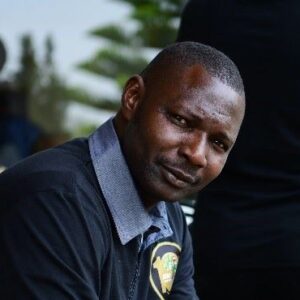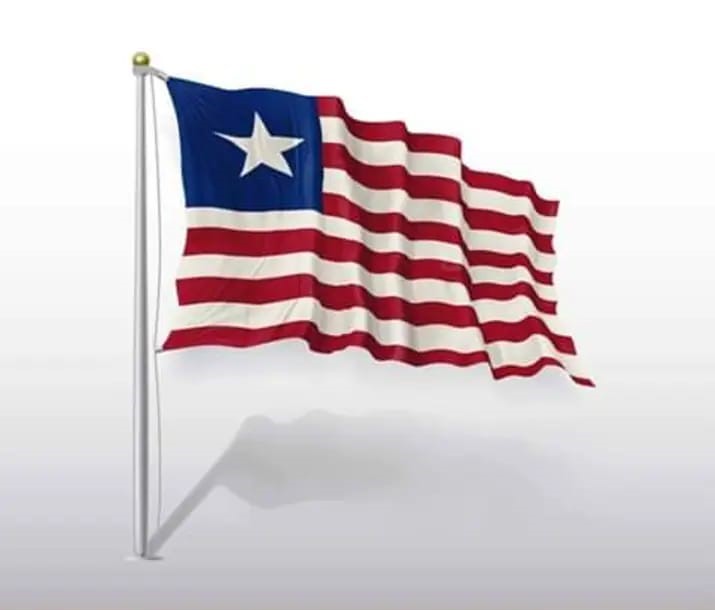The Paradox Of Liberia’s Independence
By Danicius Kaihenneh Sengbeh
On July 26, 1847, Liberia declared itself a sovereign nation, becoming a beacon of hope for independence in Africa. History holds that Liberia retained its sovereignty when European colonial powers scrambled for the petitioning of Africa during the late 19th century. Historical accounts relate that President William Howard Taft (America’s 27th President) made American support to Liberia a priority of his foreign policy. This, among other exploits, enabled Liberia to remain in the American sphere of influence – thus becoming, to a greater extent, a respected and admired “big brother” in Africa. A great past!
Fast forward, as the people of Liberia celebrated their independence on July 26th this year, it is crucial that we take a moment to reflect on the true meaning of independence and the challenges that lie beneath the surface, and how we can counter these challenges. Liberia has over the last 17 decades found itself entangled in a paradox – a sovereign nation, yet dependent on others for its sustenance and development.
Back in 1847, Liberia stood tall, her freedom alive, and her people singing songs of liberty and national pride. As time passed, the country’s overreliance on foreign imports and development assistance, coupled with mismanagement and pervasive corruption, became glaring issues. The dream of self-reliance remained elusive, and Liberia continues to yearn for true independence, though independent.
For instance, despite its fertile soil and abundant water resources, Liberia struggles to feed itself and depends on foreign imports for its staple food, rice, among many other essentials. This raises the question whether a nation can truly be independent if it cannot feed itself and control its own destiny? On the development and national agenda fronts, every new government that has come into power, has introduced grandiose development plans, but have often lost in the quagmire of no-political will, corruption and disunity. Progress remains stagnant, and the country’s vast resources have failed to translate into prosperity for its citizens. They’ve been mismanaged or untapped. The chains of underdevelopment seemed unbreakable, casting a shroud of night over the nation’s future.
The lack of continuity and commitment to long-term development plans has left Liberia struggling to keep up with other nations that have harnessed the power of national development agendas to boost their progress. Countries like South Korea, Singapore, and Rwanda, which have seen remarkable growth and development due to well-thought-out and sustained national development agendas. These countries understood the importance of laying out a clear roadmap for progress and stuck to it, irrespective of political changes. As a result, they have transformed from struggling nations to global economic powerhouses.
The absence of continuity and a unified national development agenda has hindered our nation’s ability to make sustained progress. President William R. Tolbert’s Liberalization Policy, President Samuel K. Doe’s Green Revolution, Charles G. Taylor’s Vision 2024, and President Ellen Johnson Sirleaf’s Agenda for Transformation all had their merits, but the lack of follow-through and commitment to a long-term strategy held us back. Currently, President George M. Weah’s Pro-Poor Agenda For Prosperity And Development reflects the urgency to address social inequalities and uplift the marginalized. However, if history is any indication, unless we build on the successes of the past and create a sustainable and comprehensive national policy, this progress may again be hindered by shifts in political power and priorities in the future.
In Liberia, the absence of a united and focused national agenda has hindered progress and perpetuated the cycle of poverty, underdevelopment, corruption, envy, disunity, insecurity, hypocrisy, and backwardness. The nation’s resources remain largely untapped, and its promising youthful population is too often exploited by political manipulations instead of being nurtured as the leaders of tomorrow.
Furthermore, the lack of a distinct national identity and language has contributed to a sense of disunity and disconnectedness among the people. A united front, a unique national identity, and a common language are vital to fostering a strong sense of belonging and purpose among Liberians. Without these foundational elements, the country struggles to forge ahead as a united and progressive nation.
To claim true independence, Liberia must address these fundamental challenges. It needs a sustainable and coherent national policy or agenda that is beyond the whims of individual administrations. This policy should be grounded in the country’s strengths, resources, and aspirations, emphasizing education, infrastructure, agriculture, healthcare, and sustainable development. Moreover, Liberia needs to prioritize nurturing and empowering its youth. They hold the potential to become the driving force behind the country’s progress, but they must be equipped with the skills, knowledge, and opportunities to lead effectively.
It is high time for Liberia to confront these harsh realities and take charge of its destiny. The key lies in unity – a united stand to overcome the challenges that have hindered progress. A sustainable agenda should guide the nation, one that prioritizes self-reliance and empowers the people to harness their resources for the betterment of all. It is through unity and strength that Liberia will truly thrive and break free from the shadows of dependency. It is not enough to chant “All hail, Liberia hail” without understanding the responsibilities that come with true independence. The journey ahead may be arduous, but it is a journey worth taking to secure a brighter future for generations to come.
In conclusion, Liberia’s paradox of independence lies in its inability to break free from foreign influence, lack of a sustained national development agenda, and the absence of a cohesive national identity and language. To truly become a free and independent nation, Liberians must unite and commit to a common purpose, with a clear vision for their future. There is still hope for Liberia, but it requires a serious collective effort and genuine determination to steer the nation toward a brighter and self-determined future. So, until then, allow me to declare that Liberia is independent but not “free”, and that is what I call “The Paradox of Our Independence”.
———————————————————
*About The Author:

Danicius Kaihenneh Sengbeh is a journalism, media, and communication professional with over two decades of experience. He lectures Journalism at the University of Liberia. He earned an MSc in Media and Communication Studies at Lund University in Sweden, a BA in Mass Communication at the University of Liberia and Diploma in Journalism from the International School of Journalism. He’s UN Media Fellow and former Secretary General and Assistant Secretary General of the Press Union of Liberia. He also manages Communications at the Liberia Revenue Authority, contributing to domestic resource mobilization for Liberia. WhatsApp +231777586531/dakasen1978@yahoo.com

